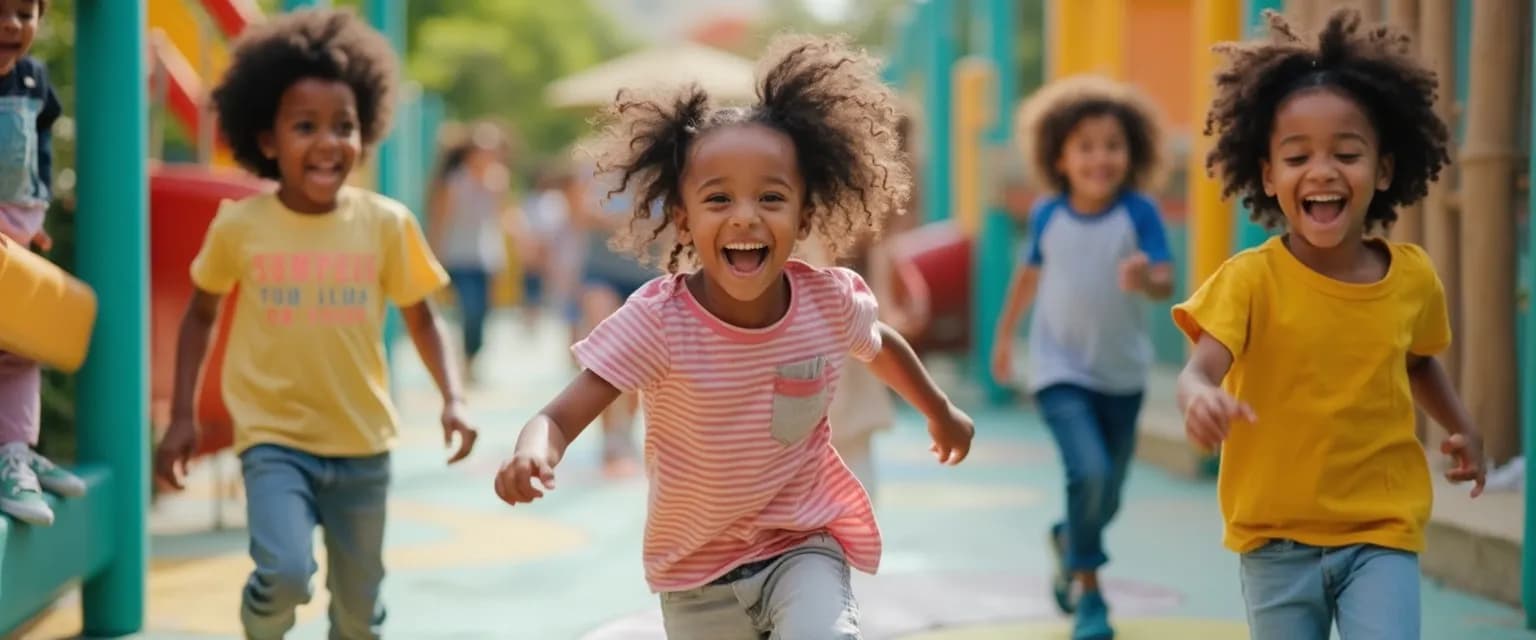5 Playground Games That Secretly Boost Children's Social Emotional Learning Self-Awareness
Recess isn't just about burning energy—it's a goldmine for social emotional learning self awareness development in children. Those seemingly simple playground games are actually powerful tools that shape how kids understand themselves and others. When children engage in structured play, they're not just having fun; they're building the foundation for emotional intelligence that will serve them throughout life.
Social emotional learning self awareness begins with recognizing one's own feelings, strengths, and challenges—skills that develop naturally through play. The playground offers a perfect laboratory where children can experiment with emotions in a low-pressure environment. By building emotional intelligence through games, children develop crucial self-regulation skills that benefit them in the classroom and beyond.
Let's explore five traditional playground games, reimagined to boost social emotional learning self awareness while keeping the fun intact. These require no special equipment—just a little creativity and guidance from adults.
Classic Playground Games Reimagined for Social Emotional Learning Self Awareness
1. Emotion Freeze Tag
In this twist on traditional freeze tag, when a child is tagged, they must "freeze" in a pose that represents a specific emotion. Other players can unfreeze them by correctly identifying the emotion being displayed. This game helps children connect physical expressions with emotional states—a cornerstone of social emotional learning self awareness.
For younger children, stick with basic emotions like happy, sad, angry, and surprised. Older kids can explore more nuanced feelings like frustrated, nervous, or proud. The physical activity combined with emotional recognition creates powerful neural connections.
2. Mirror, Mirror
In pairs, children take turns being the "leader" and the "mirror." The leader makes facial expressions and body movements representing different emotions, while the mirror copies exactly. After each round, children discuss what emotions they portrayed and how they knew.
This game develops body language awareness and helps children recognize how their expressions impact others—a key component of social emotional learning self awareness.
3. Strength Spotlight Hopscotch
Create a hopscotch grid where each square represents a different personal strength (kindness, courage, creativity, patience). As children hop, they call out a time they demonstrated that strength. This game helps children identify and verbalize their positive qualities—boosting self-awareness while reinforcing positive self-concept.
The physical movement combined with verbal reflection makes this a powerful social emotional learning self awareness activity that children eagerly participate in without realizing they're developing crucial life skills.
Advanced Social Emotional Learning Self Awareness Through Collaborative Play
4. Emotion Detective
One child acts out a scenario showing an emotion without naming it (finding a lost toy, winning a game, etc.). The other children become "emotion detectives" who must identify what the person is feeling and why. This game teaches children to recognize emotional cues in others—extending self-awareness to social awareness.
The discussions that naturally emerge help children understand that the same situation might trigger different emotions in different people, a sophisticated aspect of social emotional learning self awareness.
5. Feelings Relay Race
In teams, children run to a basket containing scenario cards (spilling milk, scoring a goal, losing a game). Each child draws a card, acts out an appropriate emotional response, then runs back to tag the next teammate. This fast-paced game connects actions to emotional responses while building teamwork.
The varied scenarios help children recognize that emotions are connected to specific triggers—a crucial understanding in social emotional learning self awareness development. The collaborative nature also helps children who struggle with social interactions practice in a structured, supportive environment.
Implementing Social Emotional Learning Self Awareness Games for Maximum Impact
For these games to truly enhance social emotional learning self awareness, brief discussions afterward are essential. Simple questions like "How did you know what emotion they were showing?" or "What happened in your body when you felt excited?" help children process their experiences.
Introduce these games gradually, starting with just 10-15 minutes once or twice weekly. As children become familiar with the concepts, you'll notice them spontaneously incorporating social emotional learning self awareness into their free play.
Parents and teachers report that children who regularly engage in these games show improved ability to name their feelings, better conflict resolution skills, and increased empathy—all stemming from enhanced social emotional learning self awareness. These playground moments create foundations for emotional intelligence that will serve children throughout their lives.




